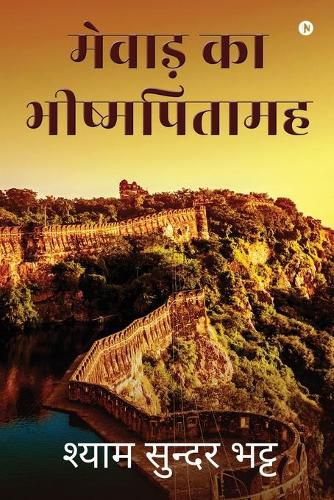Readings Newsletter
Become a Readings Member to make your shopping experience even easier.
Sign in or sign up for free!
You’re not far away from qualifying for FREE standard shipping within Australia
You’ve qualified for FREE standard shipping within Australia
The cart is loading…






This title is printed to order. This book may have been self-published. If so, we cannot guarantee the quality of the content. In the main most books will have gone through the editing process however some may not. We therefore suggest that you be aware of this before ordering this book. If in doubt check either the author or publisher’s details as we are unable to accept any returns unless they are faulty. Please contact us if you have any questions.
Bhishma Pitamah is remembered with reverence from ages to ages as a well-known personality among the great generals and state veterans. To deprive him of the succession of the state for the happiness of his father, and to dedicate his entire life in the interest of that nation has been the specialty of that great man.
One such incident appeared in the state of Mewar in end of the 14th centuries during the reign of the then Maharana Laksha Singh, affectionately called Rana Lakha .
Yuvraj Shri. Chunda, son of Sri Lakha and the crown prince of Mewar, not only rejected the proposal of marriage for him by observing fathers feelings for the marriage proposal and made the same girl married to his father. In this matrimonial process, Shri. Chunda had made sacrifice of his throne to give honour to the condition proposed by the father that if he get son from new marriage then new born will be the heir of the state. In later year Prince Mokal born from the marriage of Sri. Lakha and Princess Hansabai of Mandore and made crown prince and later ruler of the state.
After the death of Maharan Lakha’s, the child Mokal was placed on the throne of Maharana and the responsibility of management was entrusted to Shri. Chunda, but being hurt by political and family conspiracies, Shri. Chunda and his two hundred tribal family supporters thought it better to leave Mewar. The fabric of this novel has been woven on the basis of the following aspects of what happened in that period of history.
$9.00 standard shipping within Australia
FREE standard shipping within Australia for orders over $100.00
Express & International shipping calculated at checkout
This title is printed to order. This book may have been self-published. If so, we cannot guarantee the quality of the content. In the main most books will have gone through the editing process however some may not. We therefore suggest that you be aware of this before ordering this book. If in doubt check either the author or publisher’s details as we are unable to accept any returns unless they are faulty. Please contact us if you have any questions.
Bhishma Pitamah is remembered with reverence from ages to ages as a well-known personality among the great generals and state veterans. To deprive him of the succession of the state for the happiness of his father, and to dedicate his entire life in the interest of that nation has been the specialty of that great man.
One such incident appeared in the state of Mewar in end of the 14th centuries during the reign of the then Maharana Laksha Singh, affectionately called Rana Lakha .
Yuvraj Shri. Chunda, son of Sri Lakha and the crown prince of Mewar, not only rejected the proposal of marriage for him by observing fathers feelings for the marriage proposal and made the same girl married to his father. In this matrimonial process, Shri. Chunda had made sacrifice of his throne to give honour to the condition proposed by the father that if he get son from new marriage then new born will be the heir of the state. In later year Prince Mokal born from the marriage of Sri. Lakha and Princess Hansabai of Mandore and made crown prince and later ruler of the state.
After the death of Maharan Lakha’s, the child Mokal was placed on the throne of Maharana and the responsibility of management was entrusted to Shri. Chunda, but being hurt by political and family conspiracies, Shri. Chunda and his two hundred tribal family supporters thought it better to leave Mewar. The fabric of this novel has been woven on the basis of the following aspects of what happened in that period of history.